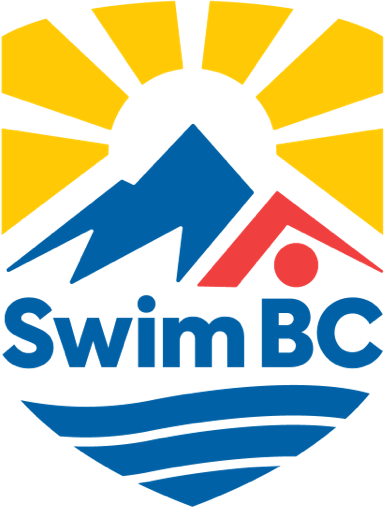
PlaySafe BC

viaSport’s PlaySafe BC Program
PlaySafe BC is a program designed to advance viaSport’s mission to build trust and confidence in sport through education and awareness of safe sport practices, contributing to the elevation of sector capacity. It is based of four pillars; prevent, report, respond, and uphold.
PlaySafe BC Objectives
The PlaySafe BC program empower individuals and communities to recognize and speak up about behaviour they see or experience; provides sports organizations with the structure, knowledge, skills, and resources to support safe sport experiences; and encourages everyone involved in the amateur sport system to enable and promote behaviour change to all sport participants.
Flag Tool for Sport
viaSport has recently develop the Flag Tool for Sport to help anyone involved in sport to determine if a behaviour they have experienced or witnessed crossed the line of appropriate behaviour. The tool also helps the user get some guidance on how to respond.
Maltreatment
Standards of Behaviour
The B.C. Universal Code of Conduct (www.viasport.ca/bc-universal-code-of-conduct) sets the standards for acceptable behaviour by all participants in all accredited sports organizations in the province. It establishes common definitions, responsibilities, and prohibited behaviours. If the Code of Conduct is breached, that means some level of maltreatment has occurred.
If you’re not sure if a behaviour crossed the line or not, you can use viaSports Flag Tool for Sport to help you assess the behaviour and get guidance on possible next steps.
Complaints
If a situation occurs where the environment you are in is not accessible, inclusive, or respects personal goals of participants and/or is not free from all forms of maltreatment, you have a right to make a complaint. Swim BC and all Swim BC member clubs are required to have policies and procedures – such as a Discipline and Complaints Policy – that can guide you towards the next steps in the process.
There are many options for addressing maltreatment, and filing a formal complaint is just one of them. You could consider these options from viaSport and from Play by the Rules:
- trying to sort the matter out yourself;
- informal discussions with the other party;
- mediation – a discussion facilitated by an expert, aimed at finding a way forward that meets the needs of all of the people involved;
- lodging a formal written complaint at the level the incident occurred;
- appealing to the next level if you believe the outcome was; biased, you have been denied natural justice or the process didn’t follow your sport’s procedures;
- referring or lodging a complaint with an external authority (e.g. police or child protection services).
You should lodge your complaint at the level at which the incident occurred – if it happened at a club, you should contact the club. Check the policies of the club to see who to contact with your complaint.
If you are concerned about complaining to a club because of potential conflict of interest, you can reach out to Swim BC.
Issues of Harassment or other such matters which run counter to maintaining a sport environment that is accessible, inclusive or respectful can be reported to Swim BC.
Swim BC members with a complaint may contact the Swim BC Club Services Manager and/or the Executive Director.
Additional Complaint Resources:
Physical Safety
Concussion
Concussions are the most common form of head injury caused by an impact or forceful motion of the head or other part of the body, resulting in rapid movement of the brain within the skull. Concussions can occur in any sport or activity, and are a common injury in the sport of swimming. It is important for everyone involved in the swimming community to learn about their role in concussion awareness. Below are a list of resources for concussion signs, symptoms, and what to do if a concussion happens to someone you know.
- Best Practices – Guidelines for recognizing, responding, and managing concussions – CATT Online
- Quick Concussion Assessment – CATT Online
- Return to Sport after a Concussion – CATT Tool
- Find a Practitioner – Sport Med BC Directory
- Concussions and Mental Health
- Local Brain Injury Organizations in BC
Injury Prevention
Active and Safe Central is a resource to learn about common injuries, risk factors, and how to prevent injury in a large amount of sports. To learn about injury prevention in swimming, use this link: https://activesafe.ca/swimming/
Psychological Safety
Mental Health
What is Swim BC doing about psychological safety? It is important to continue to learn and educate yourself about mental health and mental illness. As we continue to learn, and as you continue to learn, we will all be better equipped to maintain and improve mental health and awareness for everyone. These resources listed below can help educate anyone on both specific mental illness, or if you are looking to help yourself or someone you care about.
How you can support others:
Learn how to support others at the Be There website: https://bethere.org/Home
- Learn about the “5 Golden Rules” https://bethere.org/Say-What-You-See
- Say what you see
- Show you care
- Hear them out
- Know your role
- Connect to help
- Earn your Be There certificate by doing the online training https://betherecertificate.org/
Resources to learn more:
- Mental Health in Sport (CAC)
- Psychological First Aid
- Coaching Association of Canada Mental Health Hub
- Canadian Mental Health Association
- Canadian Centre for Mental Health in Sport
Mental Health and Sport Resource Hub
The Mental Health & Sport Resource Hub is a new resource platform provided by the CAC. The hub provides the tools and information to overcome stigma and guide conversations about mental health in sport. This is a free online portal, which offers training and resources for coaches to develop mental health literacy and positive coaching practices to improve performance and well-being in sport. For more information, visit the CAC Mental Health and Sport Resource Hub.

The Swim BC office is located on the unceded territories of the lək̓ʷəŋən speaking people known today as the Songhees, the SXIMELEL (Esquimalt) and the WSÁNEĆ First Nations.
Swim BC gratefully acknowledges the financial support of the Province of British Columbia.
Address
305-4420 Chatterton Way
Victoria, BC V8X 5J2
Contact
778-430-9100
Email
